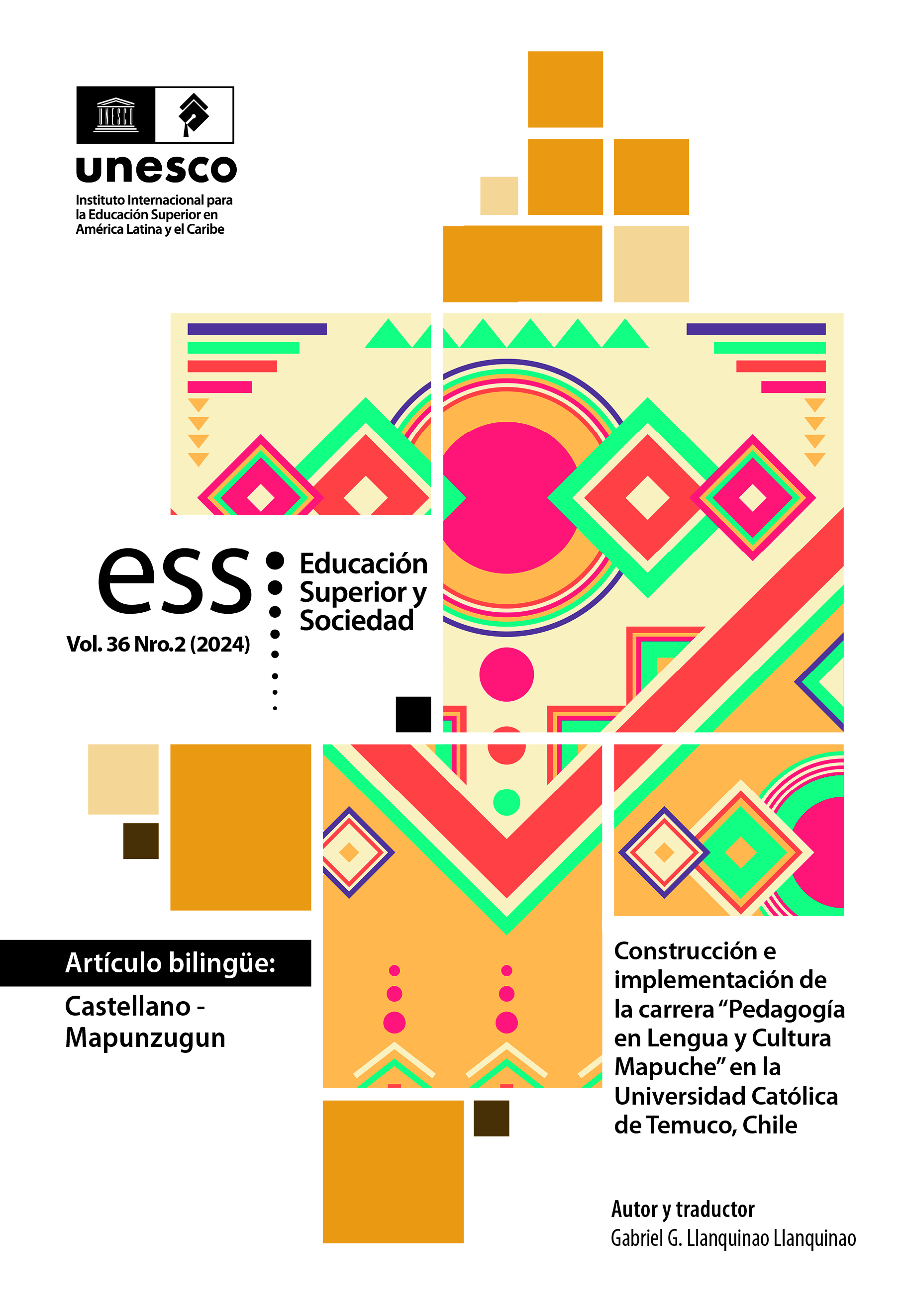Construction and implementation of the “Pedagogy in Mapuche Language and Culture” program at the Catholic University of Temuco, Chile
Wüxampüramgen ka amulniegen ta we kimeltun zugu “Kimeltu Mapunzugunael” Universidad Católica de Temuco, Chile mew
Abstract
This article presents the results of the co-construction process of the Mapuche Language and Culture Pedagogy Degree -Kimeltu Mapunzugunael- at the Catholic University of Temuco, in south-central Chile, Mapuche territory - Wallmapu, which was institutionally approved in 2022, and is currently being studied by the second cohort of students. It exposes the results of the contextual participatory diagnosis, based on dialogues and representative meetings with different actors of the social and institutional environment, where visions, needs and requirements of the formal institutions were collected, specifically from the normative frameworks, as well as the own view and expectations of mapunche members of the territories. In effect, this article is organized in seven sections, namely: 1) Current situation of the Mapuche language and the need to revitalize it, 2) the opportunities offered at the Catholic University of Temuco, 3) national policies that favor the creation of the career, 4) educational immersion as a methodological possibility of teaching, 5) experiences of teaching native languages in Chile, 6) training plan and its initial phase of implementation and, 7) final considerations and projections of implementation.

Copyright (c) 2024 Gabriel Gonzalo Llanquinao Llanquina

This work is licensed under a Creative Commons Attribution-NonCommercial 4.0 International License.
Copyright notice
Copyright allows the protection of original material, and curbs the use of others' work without permission. UNESCO IESALC adheres to Creative Commons licenses in the open access publication of ESS. Specifically, texts published in this journal are subject to a Creative Commons Attribution-NonCommercial 4.0 International (CC BY-NC 4.0) license: ESS is an open access journal, which means that all content is freely available to the user or their institution. Users may read, download, copy, distribute, print, search or link to the full text of the articles, or use them for any other lawful purpose, without asking prior permission from the publisher or the author, always making sure to cite the author. Commercial use is not permitted. ESS requires authors to accept the Copyright Notice as part of the submission process. Authors retain all rights.
The full license can be found at https://creativecommons.org/licenses/by-nc/4.0/
 Attribution - NonCommercial (CC BY-NC 4.0)
Attribution - NonCommercial (CC BY-NC 4.0)
This journal does not charge authors for the submission or processing of articles. The authors of the contributions will receive acknowledgment of receipt that the work has reached the Editorial Team of the Journal.



